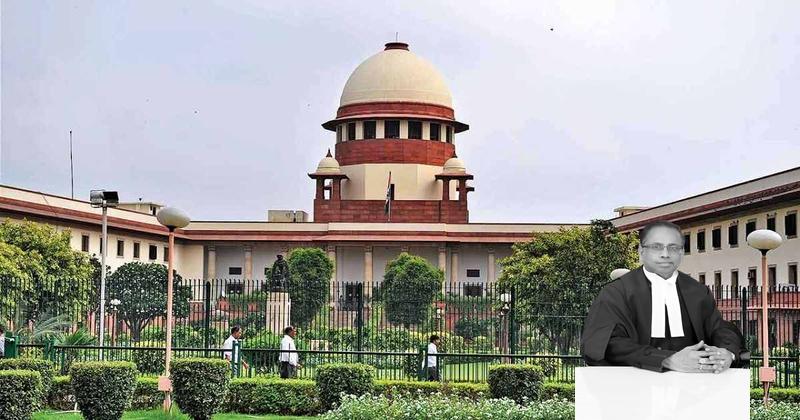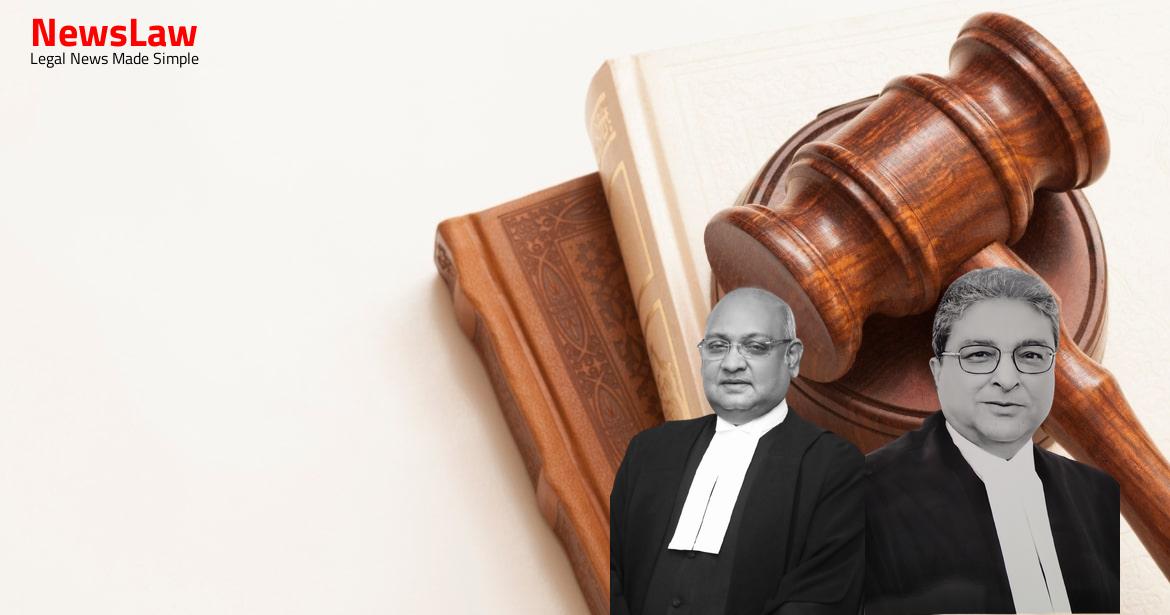Explore the detailed legal analysis by the court regarding contempt jurisdiction in a complex property dispute. The examination of intentional disobedience, wilful actions, and the need for clear evidence in initiating contempt proceedings sheds light on the nuanced application of the law. Stay tuned to gain insights into the court’s meticulous approach towards upholding the majesty of law in contentious matters.
Facts
- The respondent filed application seeking recall of the order dated 30.6.2015 due to alleged infringement of trademark by the petitioner.
- The application was disposed on 12.7.2018 after recording a second agreement between the parties.
- The petitioner agreed to abstain from using the word ‘SPLASH’ or any deceptively similar word as per the second agreement.
- The respondent’s special leave petitions were dismissed by the court on 22.2.2019.
- Parties agreed on revised monthly rent and outstanding dues payment as per the settlement agreement.
- The suit premises were vacated by the respondent causing damage, leading to further legal actions.
- The respondent filed multiple applications seeking intervention due to alleged disobedience by the petitioner.
- Both parties had agreed to abide by the Settlement Agreement terms, including ceasing the use of ‘SPLASH’ trademark by the petitioner.
- The respondent failed to adhere to the directions of the Court leading to contempt proceedings.
- The possession of the premises was eventually handed over by the petitioner.
- The respondent sought modification of the order for extension of time to vacate the premises in accordance with the Settlement Agreement.
- The respondent apologized and explained the non-payment of outstanding dues as a response to the trademark infringement by the petitioner.
- The agreement included withdrawal of trademark-related cases filed by either party.
- Applications for extension of time to handover possession were rejected by the learned single Judge of the High Court.
- The Division Bench rejected the appeals filed by the respondent.
- The Division Bench noted that the suits were disposed of as per the settlement between the parties.
- The Division Bench stated that if there is a violation of the settlement or decree, the appellant should seek execution of the decree or other relief as permissible by law instead of seeking more time based on the premise of the respondent violating the agreement.
Also Read: Land Acquisition Challenges for Integrated Infrastructure Project
Arguments
- Right to mesne profits pre-supposes a wrong, while right to rent proceeds on the basis of a contract.
- There is an intermediate class of cases where possession, though not wrongful initially, becomes wrongful when retained without authorization.
- In such cases, the owner is entitled to claim only fair rent, not mesne profits.
Also Read: Analysis of Legal Issues in Property Dispute Case
Analysis
- Minor repairs required by the petitioner for the water park were not intentional disobedience of the court order.
- Initiation of contempt action against the respondent is not warranted for the minor repairs issue.
- Petitioner can pursue the claim for repairs in execution or other permissible proceedings.
- No final opinion was expressed on the condition of the suit premises during possession handover.
- Complex factual questions regarding the suit premises need not be adjudicated in contempt proceedings.
- It can be assumed that no damage was caused by the respondent to the structure in question.
- The applications seeking modification of the order dated 12 July, 2018 were rightly dismissed by the learned Single Judge.
- Contempt jurisdiction should not be exercised based on mere probabilities, but rather on clear evidence of deliberate disobedience.
- Criticism against courts in contempt proceedings for exceeding powers can be avoided by proper adjudication of disputes.
- Respondent not liable to pay double the rent as per Settlement Agreement.
- Fixtures taken by respondent were permitted under the agreement.
- Allegations of damage were based on misleading photographs.
- Petitioner started operating water park immediately after taking possession.
- No adjudication on liability of respondent to pay further rent by the Court.
- Explanation offered by respondent shows no intentional or wilful disobedience.
- No need to initiate contempt action for not filing an undertaking.
- Non-payment of outstanding dues should be addressed in execution proceedings.
- High Court and Division Bench left the parties to pursue remedies in execution proceedings.
- Contentions on outstanding dues to be examined by executing Court.
- No intentional violation or wilful disobedience by respondent.
- Parties can pursue their claims in accordance with the law in execution proceedings.
- Petition disposed of with all rights and contentions left open for parties.
- Resolution of liability for monthly rent to be determined in execution proceedings.
- Debris left behind by respondent did not cause damage or defacement of the property.
- High Court allowed respondent to pursue grievances in execution proceedings.
- Contempt jurisdiction is utilized to punish wilful disobedience or obstruction to the majesty of law.
- The mental element of ‘wilful’ requires consideration of a person’s state of mind and actions.
- Wilful implies intentional, conscious, calculated, and deliberate actions with full knowledge of consequences.
- Punishment for contempt requires a calculated action with an evil motive.
- Compelling circumstances may excuse disobedience of an order and prevent punishment for contempt.
- Contempt actions should not be initiated if there are two possible interpretations and the action is not contumacious.
- Contempt jurisdiction does not cover casual, accidental, bona fide, unintentional acts, or genuine inability.
- Wilful acts exclude involuntarily or negligent actions, the element of willingness is crucial.
- Exercise of discretion by the court should uphold the court’s dignity and majesty of the law.
- Contempt jurisdiction is not meant to address issues not decided in the original judgment or order being violated.
- Deliberate conduct means the person knows and intends to act in a certain way.
- The initiation of civil contempt action should not cover acts done negligently or involuntarily.
- The use of contempt should not be abundant or misused per the precedent in R.N. Dey vs. Bhagyabati Pramanik & Ors.
Also Read: Legal Analysis on Levy of Customs Duty on Non-Excisable Goods Sold in Domestic Tariff Area by an EOU
Decision
- Respondent permitted to withdraw excess amount, subject to filing undertaking
- Respondent to pay double the amount of rent for unauthorized occupation
- Prayer for reduction of deposit amount to Rs. 87,37,677/- considered
- Petitioner’s claim for outstanding dues before vacating suit premises
- Prayer for refund of Rs.1,50,00,000/- along with interest
- Orders issued regarding the vacating of premises as per undertaking
- Petitioner’s liability to stop using trademark ‘SPLASH’ after 31.10.2018
- Revised settlement terms and monthly rent obligations discussed
- Refund of security deposit to respondent mentioned
- Dismissal of appeals and disposal of Special Leave Petition
- Discharge of show cause notices and reiteration of remedies in law
- Factual background of the case and legal proceedings mentioned
Case Title: HUKUM CHAND DESWAL Vs. SATISH RAJ DESWAL (2020 INSC 389)
Case Number: CONMT.PET.(C) No.-000591 / 2019



